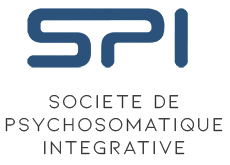Integrative Psychosomatics

The human being is
a psychosomatic unit
Based on the systems theory (L. von Bertalanffy), J.-B. Stora developed the approach of "integrative psychosomatics" which dynamically links psychoanalysis, medicine and neuroscience in order to explain the processes of somatization, by proposing the theory of the five systems: the psychic system, the central nervous system, the autonomic nervous system, the immune system and the genetic system. In this model, the psychic system participates in somatization without being the cause. This is a multicausal approach to illness.
Based on the systems theory (L. von Bertalanffy), J.-B. Stora developed the approach of "integrative psychosomatics" which dynamically links psychoanalysis, medicine and neuroscience in order to explain the processes of somatization, by proposing the theory of the five systems: the psychic system, the central nervous system, the autonomic nervous system, the immune system and the genetic system. In this model, the psychic system participates in somatization without being the cause. This is a multicausal approach to illness.
A new model of the functioning of the mind in relation to the sick body: integrative psychosomatics is a scientific approach at the crossroads of metapsychology, medicine, and neuroscience with reference to new disciplines such as psycho-neuro-immunology, psycho-neuro-endocrinology, neuro-psychoanalysis, etc. It is the study of the interrelations between medicine, psychoanalysis of the archaic phase of development, and neuroscience in order to better understand the pathologies of somatic patients.
Mental defenses are a defense system alongside the immune system. The strengthening of mental defenses protects human beings from diseases and their severe forms.
Integrative psychosomatics is a discipline whose objective is to study the interrelationships between psychoanalysis, medicine and neuroscience, and to evaluate the consequences for patients' health and compliance with treatment.
The psychosomatician is a complementary practitioner to the biosomatic approach: he/she broadens the clinical investigation and the therapeutic management.
A new approach at the crossroads of the interrelations between :

Medicine
There is no psychosomatic disease, but a psychic, neuronal and somatic participation in any disease.
The psychosomatician extends the clinical investigation and therapeutic management, maintaining dialogue with the referring physician or specialist and treating patients in a complementary manner.

Neuroscience
The principle of somatization - elaborated by Jean Benjamin Stora - distinguishes 5 stages of management to the daily excitations: the exploratory system, the system of reaction of rage and anger following an aggression, the system of reaction of fear and finally the system of separation-distress or panic system more especially related to the feeling of loss and sadness.

